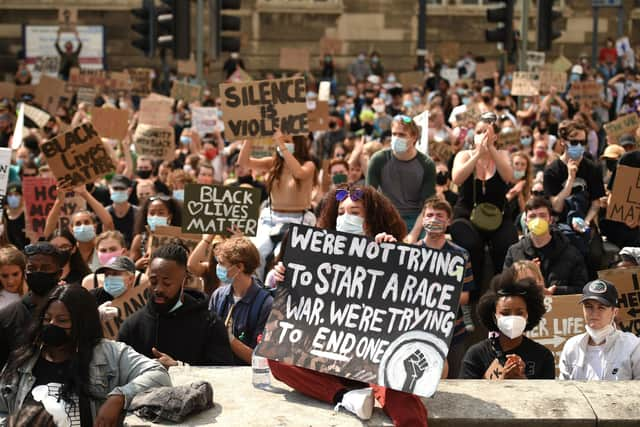Repairing the damage of our colonial legacy - Saranel Benjamin
This article contains affiliate links. We may earn a small commission on items purchased through this article, but that does not affect our editorial judgement.
It is only in the last two years, that international development organisations, like Oxfam, have truly begun to confront racism in the sector after reports – including by the UK’s International Development Committee – revealed institutionalised racism. At the same time, civil society organisations in Africa, Asia, Latin America and the Middle East have called out the behaviours and practices of “northern based” international non-governmental organisations as “colonial” and “racist”.
Fast forward, and a new paper by the SNP at Westminster critiquing the UK Government’s approach to international development, says an independent Scotland would recognise “Scotland’s colonial crimes” as part of efforts to “decolonise development”. Parallel commitments to increase development spend, and to focus it on tackling poverty not the “national interest”, are very positive. However, the paper would be strengthened by explicit recognition of the deep overlaps between colonialism and present-day racial injustice. We cannot end poverty without confronting this reality.
Advertisement
Hide AdAdvertisement
Hide AdDoing so has raised huge discomfort amongst UK-based international development and humanitarian organisations. After all, weren’t these charities set up to do good and to serve?


The default response has been to tackle racism or colonialism but rarely both. Emphasis has been placed on tackling racism internally – through diversity, equality and inclusion efforts – or shifting power to civil society organisations in the “Global South”, often blind to the colonial systems and practices, including the transference of risk, still embedded within it.
But we must understand that while international development and humanitarian organisations have saved countless lives and often worked with communities to eradicate poverty, such assistance was born from the legacy of colonialism. This was a period marked by the slave trade which accounted for 11 percent of Britain’s GDP in the 19th century through the enslavement of 12 million Black people, including by Scottish colonisers. The enduring legacy of colonialism can be seen today in many post-colonial countries through extractive industry and exploitative labour practices.
As countries began to achieve their independence from the 1940s, colonial powers offered international aid assistance. As a prominent historian noted, the goal was to “make Africans healthier and better educated, incorporated into more effective governmental institutions". This problematic foundation not only centred the ‘white gaze’ but it was also an attempt to recreate Africa in the image of Britain, enabling it to become yet another institutionalised form of colonial and racist power over the former colonies.
Today, anti-Black racism, racism against indigenous people and people of colour, remain inextricably linked to the UK’s economic and political status in the global space. Across every sector, it is therefore impossible to eradicate racial injustice without tackling colonial legacy, and vice versa.
As Oxfam prepares to mark its 80 years of existence, we continue to reconcile that our own past is bound up in colonial legacy. We have been spurred by the findings of an independent commission to dismantle and disrupt colonial power as it shows up in the way we work. We recognise that it has enabled us to exercise control over civil society organisations in the Global South, and prioritise northern and white skills, expertise and knowledge.
By explicitly linking decolonisation with racial justice, we are embedding proactive and preventive measures to support equitable opportunities and outcomes for people of all races. We are prepared to repair the harm caused by not repeating it, being intentionally aware of our power and being held to account for how we use it.
After all, we – and others – have a duty to change.
Saranel Benjamin, Head of Partnerships, Oxfam GB
READ MORE
For a Scottish perspective on news, sport, business, lifestyle, food and drink and more from Scotland's national newspaper, go to www.scotsman.com
To subscribe go to www.scotsman.com/subscriptions
Comments
Want to join the conversation? Please or to comment on this article.